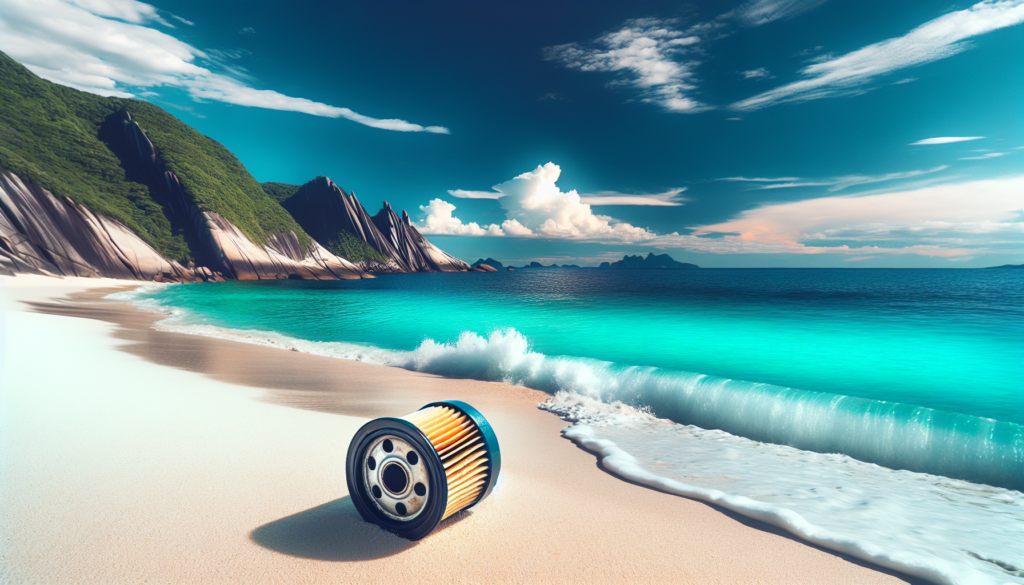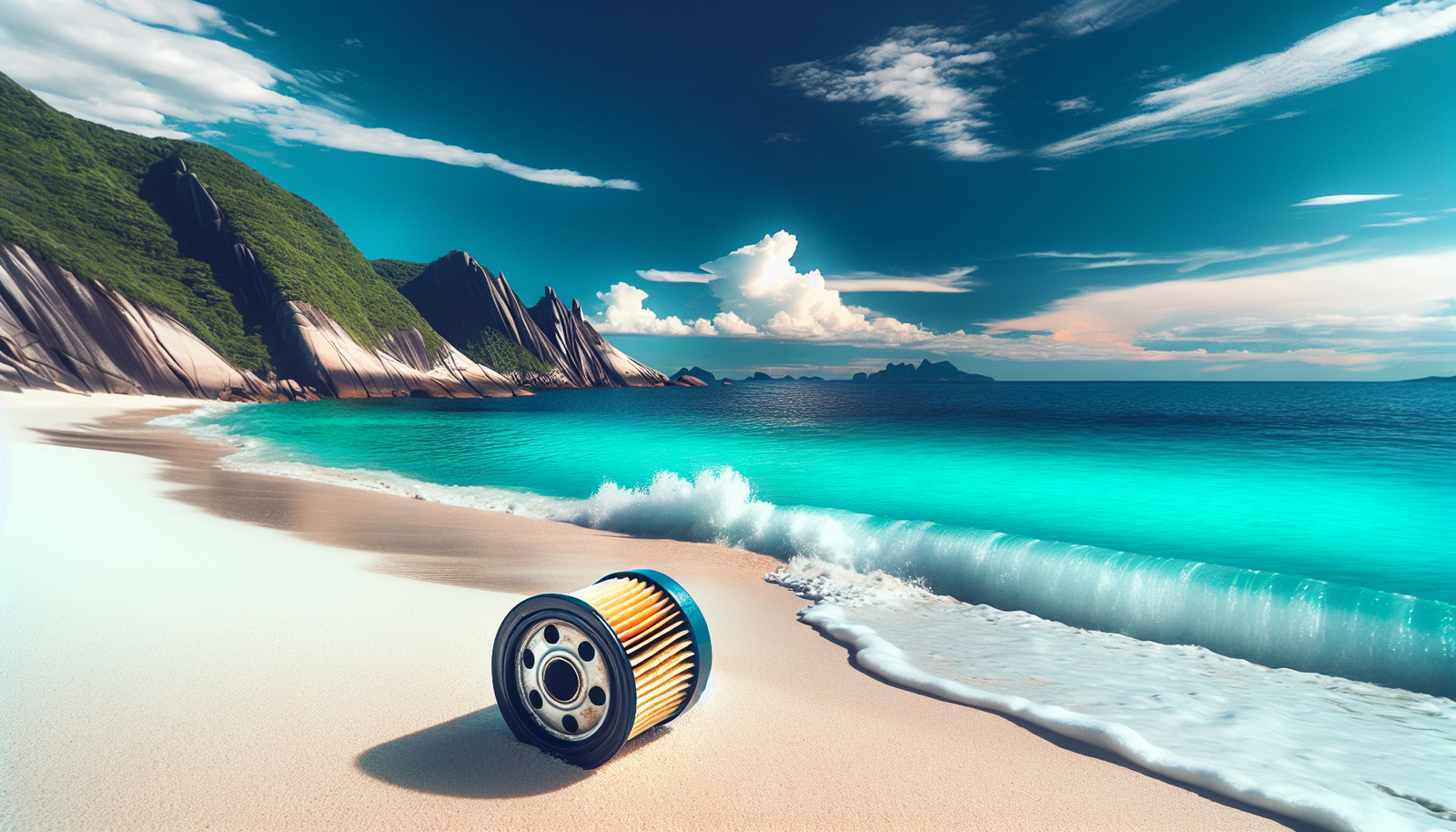In the realm of boating, maintenance extends beyond just the surface. It’s not merely about polishing the vessel or tuning the engine – it centers around the crucial responsibility of proper disposal of boat engine oil and parts as well. You may scratch your head, wondering why such a mundane task holds weight. Reflect on this; the reckless disposal can lead to critical environmental issues and hefty fines. The article, “The Importance Of Properly Disposing Of Boat Engine Oil And Parts”, underscores the significance of these practices, guiding you through the legalities and best methods to ensure your contribution to a cleaner, safer marine environment.

Understanding Boat Engine Systems
Whether you’re a seasoned sailor or just starting to dip your toes in the water, it’s essential to understand the mechanics of your boat to maintain its health and efficiency. Your boat engine will feel like a mystery if you’re unsure how it operates and what each piece does. So, let’s start with understanding the engine.
Necessary Parts for a Boat Engine
Understanding your boat’s engine begins with knowing its essential parts. These consist of the engine block, cylinder head, crankshaft, connecting rods, pistons, camshaft, valves, oil sump, fuel system, and cooling system. All these parts continuously function together to power the boat. Obviously, they wear out over time, requiring proper maintenance and timely replacements to prevent any boat breakdowns.
The Role of Oil in a Boat Engine
Engine oil is the lifeblood of your boat’s engine. It lubricates all the necessary parts, reducing friction and premature wear while sealing gaps to prevent leakage of combustion gases. When your engine runs, it produces heat. Engine oil dissipates this heat, preventing your engine from overheating. Furthermore, oil helps to clean the engine by gathering dirt and debris, ensuring smooth operation.
Common Issues in Boat Engine Systems
Like any mechanical system, boat engines might have problems. Some of the common issues include overheating because of failed thermostats or clogged passages, oil leaks due to worn seals or gaskets, stalling or rough running caused by fuel system problems, or ignition system failures. Regular maintenance can help to identify these issues before they become serious problems.
Environmental Impacts of Improper Waste Disposal
Sadly, when people dispose of boat engine oil and parts improperly, it can cause devastating environmental effects.
Pollution Caused by Leaking Oils and Parts
Leaking oil and worn-out engine parts that are disposed of improperly can lead to water and soil pollution. This toxic leakage makes its way into the ecosystem and contaminates it, resulting in unhealthy conditions for living organisms.
Negative Effects on Aquatic Life
The oils and toxic waste leaking into the sea pose a direct threat to marine life. From smaller marine animals to larger ones, the toxins can accumulate in their bodies, leading to a mass reduction in their population and potentially causing the extinction of some species.
Contributing to Global Waste Problems
Hand in hand with pollution, improper waste disposal also exacerbates the global waste problem. Dumping engine parts recklessly transforms beautiful landscapes into scrap yards, which do not decompose over time and choke our planet.
Specific Dangers of Improperly Disposed Boat Engine Oil
Disposing of boat engine oil improperly is not merely an environmental issue; it also invites other dangers.
Toxic Chemicals in Engine Oil
Used engine oil contains heavy metals and toxic chemicals that are harmful to the environment and humans. When improperly disposed of, these toxins can seep into our water supply, contaminating it.
Long-Term Soil and Water Contamination
Engine oil improperly disposed of can bind with the soil for many years, making it infertile for agriculture. The oil can also contaminate groundwater resources if it seeps deep into the soil, affecting life existing underwater and possibly spreading to drinking water sources.
Potential Risks to Human Health
Ongoing exposure to contaminated water and soil caused by improperly disposed engine oil can lead to an array of health issues. These include skin disorders and diseases related to the respiratory system and even the possibility of developing cancer.

Specific Dangers of Improperly Disposed Boat Engine Parts
Similar to oil, improper disposal of boat engine parts also presents significant dangers.
Environmental Hazards of Different Engine Parts
Engine parts like batteries, filters, and various metals can leak dangerous substances when they start to break down. Such leaks can be challenging to contain and cause widespread contamination.
Risks Associated With Improper Disposal of Metals
Metals found in the engine parts can rust and leach into the soil when discarded improperly, altering the soil’s composition, rendering it infertile and making it susceptible to erosion.
Potential for Injury or Damage
Unintentionally or not, improperly disposed of parts can find their way into public spaces, causing injuries or damage. Rusty metal parts may pose tetanus risks, and large, heavy pieces can impair structures or vehicles if not securely stored or disposed of.
Legal Consequences of Improper Disposal
Discarding boat engine oil and parts improperly not only harms the environment and public health, but it can also get you in legal trouble.
Local Laws and Regulations
Every locality has its own laws and regulations regarding waste disposal. Disposing of hazardous waste like engine parts and oil improperly might violate these rules, inviting penalties or severe legal action.
Penalties for Improper Disposal
Governmental agencies often enforce heavy fines on individuals or organizations found guilty of improper disposal of hazardous wastes, including boat engine oil and parts, to discourage such practices.
Potential for Legal Action
Repeated violations and severe cases of improper disposal can lead to legal action. This can entail costly litigation, reputational damage, and could even result in imprisonment.
Proper Methods for Disposing of Boat Engine Oil
Disposing of boat engine oil might look challenging, but there are proper ways to handle it.
Draining and Storing Used Engine Oil
Drain the engine oil from the engine and safely store it in a sealed, leak-proof container. It prevents any accidental spills during transportation to the disposal facility.
Specialized Disposal Facilities
Take your used engine oil to a designated disposal facility. These facilities have equipment designed to handle and process used engine oils in an environmentally-friendly way.
Recycling Opportunities for Used Oil
Unlike many waste products, used engine oil can be recycled indefinitely without losing its quality. Facilities that accept used engine oil often send it to re-refiners where it’s processed and reused, providing an environmentally sustainable option.
Proper Methods for Disposing of Boat Engine Parts
Just like with oil, there are proper ways to dispose of boat engine parts.
Taking Apart the Engine for Parts
Before disposing of, take apart the engine and sort its parts by their materials. This will help recycle as many parts as possible and ensure proper disposal of the rest.
Metal Recycling Facilities
Many components of a boat’s engine are metallic and potentially valuable. Recycling facilities often accept these metals, keeping them out of the landfill, saving energy, and contributing to a circular economy.
Safe Disposal of Non-Recyclable Parts
Some parts, unfortunately, are not recyclable and must be disposed of carefully in an approved landfill to prevent harm to the environment.
Economic Benefits of Proper Disposal and Recycling
Responsible disposal can also offer economic advantages.
Potential for Income from Scrap Metals
Many recycling facilities will pay for scrap metals. So, by recycling your boat’s engine parts, not only are you helping the environment, you may also earn a bit of cash.
Saving Money on Fines and Penalties
By properly disposing of your boat engine oil and parts, you also avoid potential fines or penalties enforced for improper disposal. It won’t just save you stress and potential reputation damage, but also hard-earned money.
Job Creation in the Recycling Industry
In the bigger picture, the proper disposal and recycling of boat engine parts and oil contribute to the recycling industry’s growth, which in turn creates job opportunities, benefiting the overall economy.
Resources for Proper Disposal Techniques
Efficient resources are available to guide you through proper disposal techniques.
Community Recycling Programs
Many local communities initiate recycling programs that accept recyclable waste, including boat engine parts. Participating in these programs aids in effective waste management.
Government Programs for Waste Disposal
Various government programs also provide facilities for recycling or responsible disposal of boat engine parts and oil. Take advantage of these resources to dispose of your waste responsibly.
Online Guides and Educational Materials
With the internet at your fingertips, information on proper disposal techniques is readily available. Numerous online guides and educational materials can offer solutions and tips for responsible disposal and recycling of boat engine oil and parts.
Promoting Responsible Disposal Habits
With the knowledge and resources available, promoting responsible disposal habits requires effort from everyone.
Education and Awareness
Awareness and education are the first steps towards change. Inform your boat owner peers about the importance and ways of proper disposal of boat engine oil and parts.
Incentives for Proper Disposal
Providing incentives can effectively encourage proper disposal. This could be in the form of discounts for services, rewards for recycling, or community recognition for responsible behavior.
Building a Sustainable Boating Community
It boils down to building a community that respects nature and prioritizes sustainability. By adopting responsible habits, we can enjoy our adventures on the water without harming our environment. After all, our love for boating comes hand in hand with an appreciation for the beautiful waterways we explore. Let’s do our part to keep them clean and thriving for future generations.


[…] precious aquatic ecosystems. From choosing the right engine and fuel, to regular maintenance and responsible disposal of waste, this article offers invaluable advice for every responsible boat owner out […]
[…] wear and overheating. Regular oil changes are essential to maintain engine health. Dirty or old oil can lead to increased friction and potential engine […]